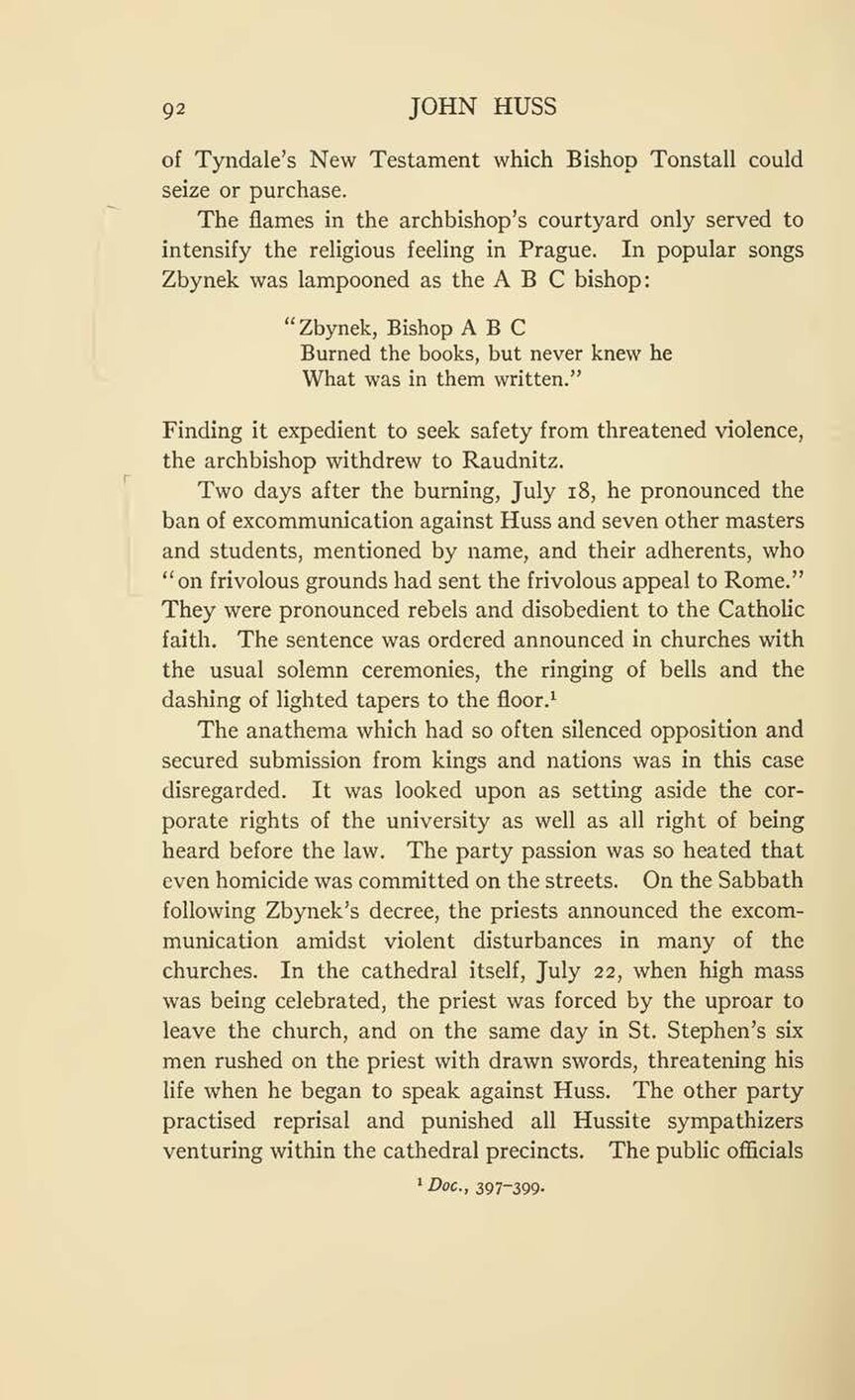of Tyndale’s New Testament which Bishop Tonstall could seize or purchase.
The flames in the archbishop’s courtyard only served to intensify the religious feeling in Prague. In popular songs Zbynek was lampooned as the A B C bishop:
“Zbynek. Bishop A B C
Burned the books, but never knew he
What was in them written.”
Finding it expedient to seek safety from threatened violence, the archbishop withdrew to Raudnitz.
Two days after the burning. July 18, he pronounced the ban of excommunication against Huss and seven other masters and students, mentioned by name, and their adherents, who “on frivolous grounds had sent the frivolous appeal to Rome.” They were pronounced rebels and disobedient to the Catholic faith. The sentence was ordered announced in churches with the usual solemn ceremonies, the ringing of bells and the dashing of lighted tapers to the floor.[1]
The anathema which had so often silenced opposition and secured submission from kings and nations was in this case disregarded. It was looked upon as setting aside the corporate rights of the university as well as all right of being heard before the law. The party passion was so heated that even homicide was committed on the streets. On the Sabbath following Zbynek’s decree, the priests announced the excommunication amidst violent disturbances in many of the churches. In the cathedral itself. July 22, when high mass was being celebrated, the priest was forced by the uproar to leave the church, and on the same day in St. Stephen's six men rushed on the priest with drawn swords, threatening his life when he began to speak against Huss. The other party practised reprisal and punished all Hussite sympathizers venturing within the cathedral precincts. The public officials
- ↑ Doc., 397–399.
